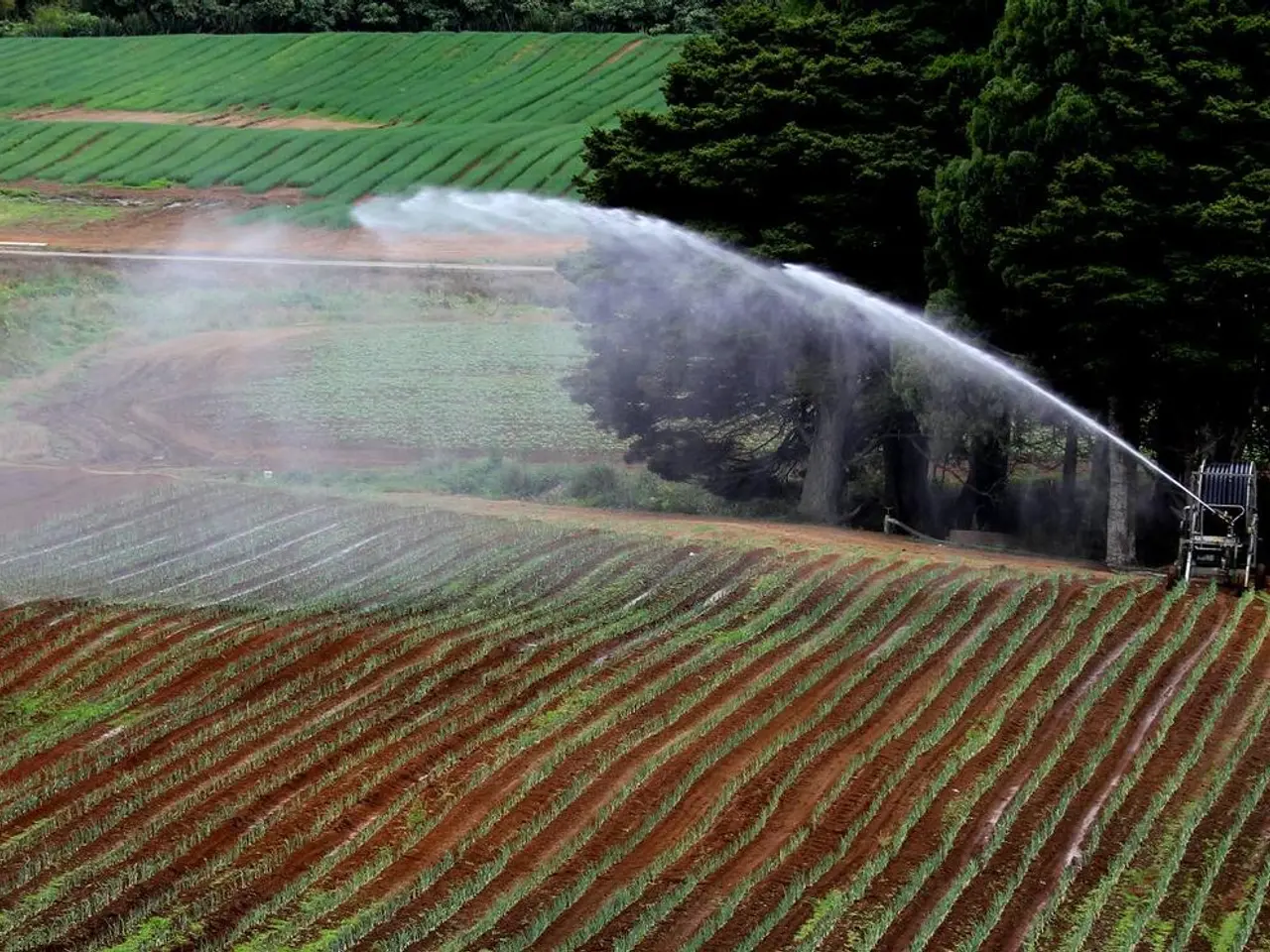Avoiding Irrigation System Malfunctions: Strategies for Reliable Performance
Maintaining a well-functioning irrigation system is crucial for efficient water usage and preventing costly breakdowns. Here are some key maintenance tips to keep your system in top shape.
Periodic tests should be performed on each zone of the irrigation system at least once a month. Uneven irrigation may be caused by clogged nozzles, misaligned sprinklers, or unbalanced pressure. A clean and well-calibrated system ensures uniform water distribution and reduces waste.
Regular maintenance allows early detection of signs such as leaks, obstructions, or defective solenoid valves. Prevention is key in maintaining the proper operation of the irrigation system, with regular tests and inspections.
To prevent breakdowns in an irrigation system, perform routine maintenance at least twice a year—ideally in spring (startup) and fall (winterization) —and schedule periodic checks during peak use seasons (e.g., summer) for optimal efficiency and early issue detection.
Key maintenance tasks include inspecting for leaks and damage, cleaning and adjusting sprinkler heads and nozzles, monitoring and adjusting water pressure, testing valves and controllers, and cleaning filters regularly. Adjust watering schedules based on weather conditions, and document all inspections and repairs.
For drip irrigation, routine inspections for leaks, clogged emitters, or damage should be frequent due to low pressure making leaks less obvious. Scheduling must also comply with local watering restrictions, such as specific days and times.
A preventative maintenance schedule might look like this:
| Season | Maintenance Actions | |--------------|----------------------------------------| | Spring | Full system inspection, winterization removal, clean filters, test valves, update controller settings, leak check | | Summer | Monthly spray pattern adjustments, weekly pressure monitoring, clean filters every 4–6 weeks, adjust watering schedule for heat | | Fall | Gradually reduce watering, prepare for winterization, inspect for damage, clean system | | Winter | Winterize system (if applicable), rest period, plan repairs |
Scheduling regular inspections and maintenance around these key periods plus ongoing periodic checks will help prevent costly breakdowns and ensure efficient irrigation.
Ensure that each zone maintains stable pressure and there are no suspicious wet areas or puddles during maintenance checks. A complete inspection of the irrigation system is recommended at the start of the season. Choosing quality materials for the irrigation system helps ensure its durability and resistance to environmental conditions.
In winter or rural areas, pipes can be damaged by ice or animals, necessitating a complete inspection at the start of the season. Filter and nozzle cleaning should be done with each season change, or more frequently if the water is very hard. Abnormal pressure can indicate leaks, obstructions, or damaged solenoids.
Recommended maintenance actions include filter and nozzle cleaning, pressure control, and leak detection. Dry zones or abnormal flooding in the lawn are clear signs of a problem that require prompt action. Irrigation system maintenance is crucial for preventing breakdowns, extending system durability, and improving irrigation efficiency.
Lastly, the timer of the irrigation system should be correctly configured to ensure efficient watering. A system with quality components lasts longer and withstands environmental conditions better. By following these maintenance tips, you can keep your irrigation system running smoothly and efficiently all year round.
- To maintain a home-improvement project focused on home-and-garden, such as an irrigation system, incorporating regular irrigation system maintenance, including filter and nozzle cleaning, pressure control, and leak detection, is essential to improve irrigation efficiency and prevent costly breakdowns.
- Maintaining a lifestyle of environmentally-friendly practices and smart water usage can be achieved by scheduling regular irrigation system maintenance, like periodic inspections and cleanings, to ensure the system functions optimally and conforms to home-and-garden irrigation best practices.




